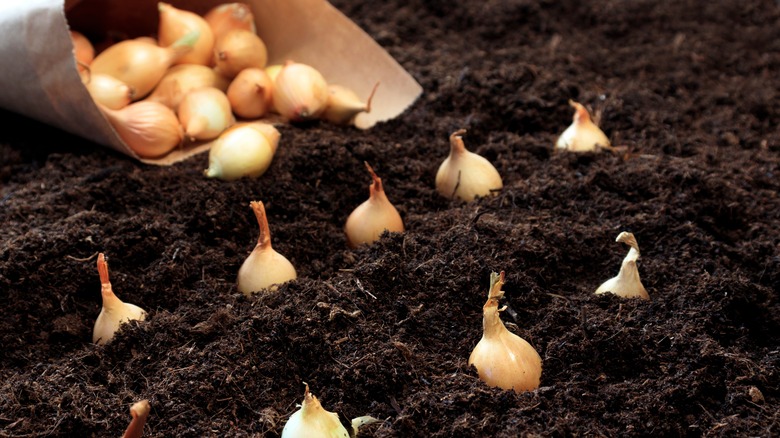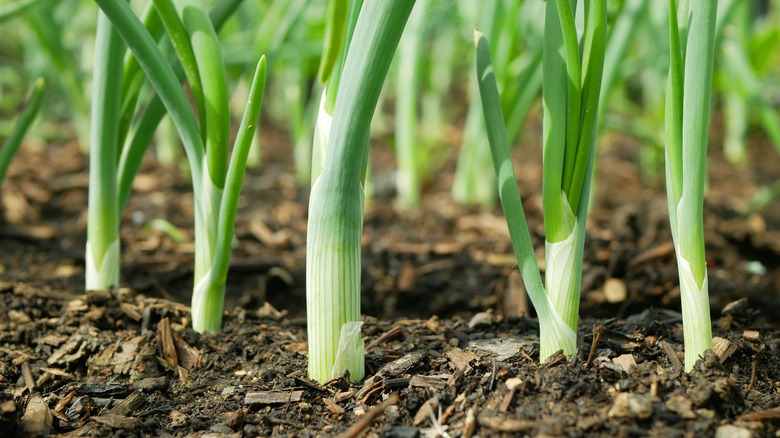The Only Type Of Onions That Should Be Refrigerated
Of all of the produce, fresh food, canned food, and whatever else that comes and goes through your kitchen, you always want to be mindful of how you're storing stuff. The proper storage methods can mean the difference between something lasting a couple of days and something only lasting a few hours.
Onions are pretty stress-free when it comes to storage, though. According to Bon Appetit, most kinds of onions will last you for a decently long time as long as they are stored in a cool, dark, dry place. So anything from red, white, yellow, pearl, diminutive pearl, shallot, to cipollini will all stay safe to eat as long as they're tucked away in a cool, dark space, preferably with some air circulation. For these kinds of onions, it's also a good idea to keep them away from your potatoes, as they can cause your onions to start leaking.
The special treatment for the special onions
While it's true the majority of onions need only a cool dry place to stay healthy, some onions require more. According to Healthline, you should be storing your green onions (also called spring onions or scallions) and your leeks in the refrigerator.
Green onions are actually just younger onions that have not fully developed their bulbs, and leeks are similar in that they never grow a bulb at all. The best way to store these kinds of onions is to unfurl them, wrap them tightly in a damp paper towel, and store them in a drawer in your refrigerator.
Actually, whole onions, if they've been cut in any way, are also best kept in the fridge or freezer, per Bon Appetit. Ideally, to avoid any unfortunate stinking up of your fridge and your onions, cut onions should be stored in an airtight container. Freezing onions might change the texture of the onions, but as long as you're cooking them up, it should be safe and delicious to do, and prolong the onions' longevity for several months.

